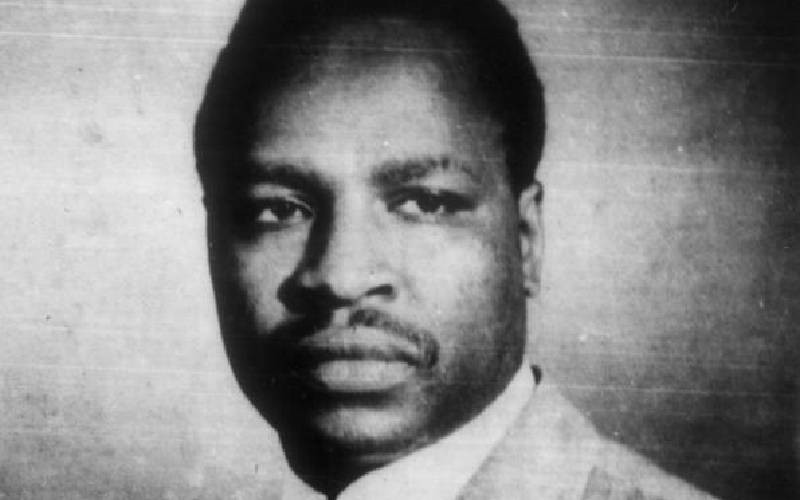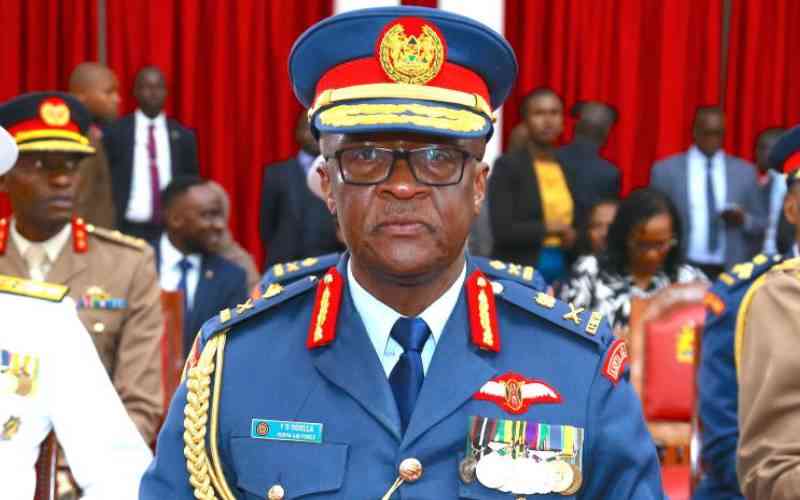NAIROBI: This is factual: I was in Class Eight at a rural primary school called Oneno-Nam in 1992. This was in Muhoroni Constituency, Kisumu County.
Mid-1991, Kikuyu, Kisii and Luhyia visitors began pouring into our local shopping centre, Songhor, with horrifying tales about what had befallen them elsewhere: robbery, arson, rape and murder. My village was terrified.
As a result, not many people slept in their huts at night for the better part of that year.
And then, in January 1992, my village; Odiyo Wang’e was attacked. I lost a neighbour called Carrilus Odoro Obuya; his children are landless orphans to date. My father was wounded. The whole village fled to Chemelil, where people stayed in limbo for close to two months. I will never forget the cold, the sun and the hunger.
We returned home in March that year, only to find that weeds had irrecoverably swallowed up the season’s crop. To this day, no one in Odiyo Wang’e has ever forgotten the hunger which cleaned their stomach the season that followed.
I narrate the above occurrence because it revolves around the issue of ethnicity, which a Kenyan writer recently dismissed.
As he has predictably done ever since the Berlin Wall, the writer harps on class as ‘the only’ source of all our miseries as a country; he has nil to say of the ethnic monster which terrorises our national mind even in sleep.
No, I do not think Ngugi wa Thiong’o is best suited; at a purely experiential level to talk about ethnicity in Kenya. He has never personally suffered as a result of this giant; those who think Ngugi was detained because of the Kanu’s tribal bile ought to be more intelligent than that.
There must be a reason why an African writer utters such comments. I have never understood why, given the soaring curve of Kenya’s tribalism since 2002, the writer has never uttered a single syllable on the disease which makes Kenya ‘burst at the seams’.
But Ngugi isn’t alone. Kenya’s literary history is that writers have paradoxically been agents of racial and ethnic division.
Yvonne Owuor and Binyavanga Wainaina constantly dramatise what they have learnt from Ngugi. They do it by projecting ‘others’ as the source of their communities’ troubles even when it’s clearly not the case.
They erect mouldy myths which tug at their people’s heartstrings and communal memory. I am not at all surprised that Ngugi’s newest work is entitled ‘The Perfect Nine: The Epic of Gikuyu and Mumbi’.
Rather than use 42 tribes as a starting point from which to forge a nation, some Kenyan writers think it is easier to unite 40 million people, one by one.
So they drive mythical wedges between Kenyan communities by harping on saintly tribal ‘heroes’, who when insulted by others, rekindle very emotive wars. There’s no literary transcendence where authors help their communities overcome ethnic barriers to nationhood.
Stay informed. Subscribe to our newsletter
Take Yvonne’s Dust (2014), which I also call ‘Ode to Tom Mboya’ – a sad insult which smears the extreme of Luo ‘victimhood’ on the Turkana people.
It is as if the marginalised Turkana have no painful historical experiences of their own. But even intriguingly, the author assumes that the late Tom Mboya was flawless.
David Goldsworthy in Tom Mboya: The Man Kenya Wanted to Forget (1982) – will tell Owuor how glowing, ember-red selfishness defined Mboya.
I hear that the author of Dust grew up in Nairobi, probably she does not know that the Wagunga people who live south-east of Kolwa clan in Kano – where she comes from – trace their journey from Mboya’s place in Mbita (where they are called ‘Kasgunga’).
When the opportunity came for ‘the flawless one’ to halt an irrigation project in Kano which should have helped his own Wagunga people near Ombeyi - trust ‘the intelligent one’ to stop the East German project very decisively.
ETHNIC DETERGENT
Most Luo rinse with ethnic detergent the fact that some of them; which is why Ngugi is partly right, were very overbearing ministers in the vilified Moi regime.
The same way the Kikuyu conveniently forget a certain powerful ‘Kanu Secretary General’. Binyavanga knows his tribe. His ethnic myth-making is as blinding as Ngugi’s. We all agree on the dark sins of the Kanu regime; no doubt.
But from someone spared long detention by that same regime, I expect a fairer judgement than the skewed, ethnic thinking which paints your saviour (Moi) in colours darker than your detainer (Kenyatta), in Detained (1981).
In One Day I Will Write About this Place (2011), Binyavanga might tell you that his father was a director of the National Cereals and Produce Board, till shortly after 1978.
What you do not expect Binyavanga to know even when it’s laughably obvious, is the implication of that fact.
It is this: That all the tissues in the author’s body were built from food bought with Kanu salary. We agree when Binyavanga observes that the regime boasted some of the worst institutional weaknesses known to Kenya.
What the author hopes you won’t see is that, precisely through those ‘milango ya nyuma’ methods, ‘connections’ helped him transfer from Njoro Boys to Mangu High School.
Most Kikuyu writers blame on the Moi regime all the evils which the Kenyan state historically committed on its people, while justifying even the ugliest, provided it was done under the tenure of someone whose name they can relate with.
I am unaware of a single nation in the world, founded on the principle of selective ethnic criticism especially from its authors. There have been detentions (such as Ngugi’s) and very painful murders (JM Kariuki but these do not obliterate the swarms of Kenyans detained and murdered on racial and ethnic grounds.
Ngugi has written many books. I congratulate him. But if the class struggle involving our Kikuyu tribe can confuse him into conflating the same for the whole country then it’s the best reason escapists must accept that their intellect succumbed to Kenya’s ethnic Ebola right from the start.
 The Standard Group Plc is a
multi-media organization with investments in media platforms spanning newspaper
print operations, television, radio broadcasting, digital and online services. The
Standard Group is recognized as a leading multi-media house in Kenya with a key
influence in matters of national and international interest.
The Standard Group Plc is a
multi-media organization with investments in media platforms spanning newspaper
print operations, television, radio broadcasting, digital and online services. The
Standard Group is recognized as a leading multi-media house in Kenya with a key
influence in matters of national and international interest.
 The Standard Group Plc is a
multi-media organization with investments in media platforms spanning newspaper
print operations, television, radio broadcasting, digital and online services. The
Standard Group is recognized as a leading multi-media house in Kenya with a key
influence in matters of national and international interest.
The Standard Group Plc is a
multi-media organization with investments in media platforms spanning newspaper
print operations, television, radio broadcasting, digital and online services. The
Standard Group is recognized as a leading multi-media house in Kenya with a key
influence in matters of national and international interest.






